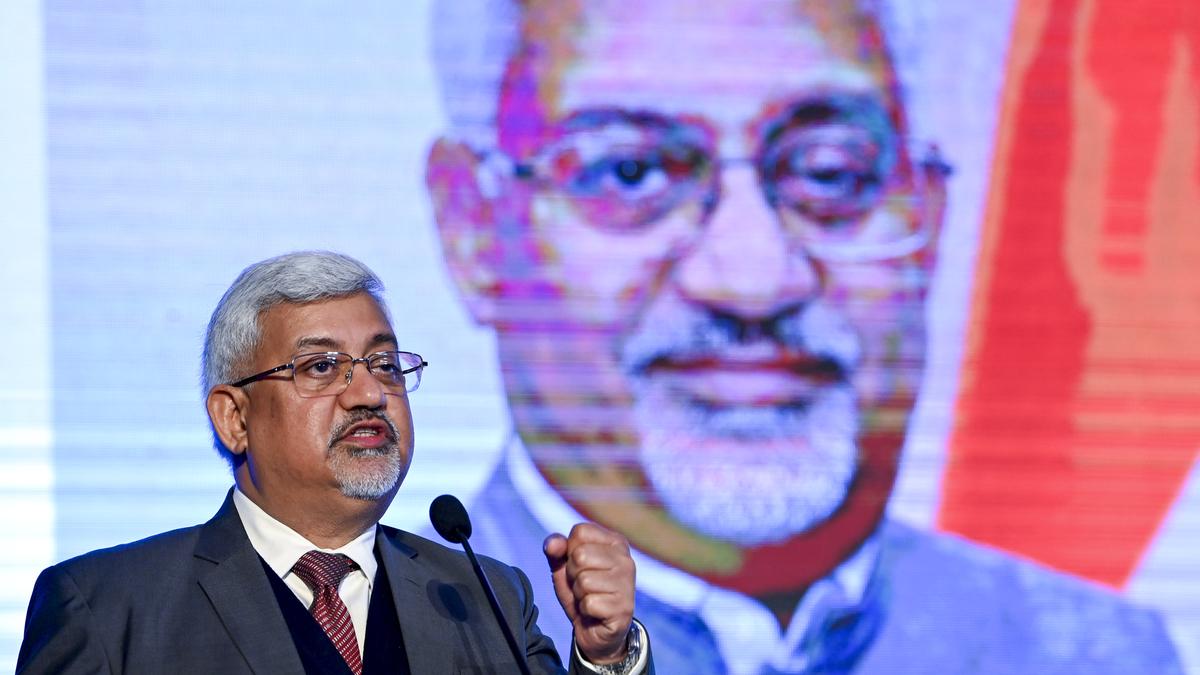
Commerce Secretary Sunil Barthwal. File
| Photo Credit: PTI
India continues to be “fully engaged” with the U.S. on a Bilateral Trade Agreement, Commerce Secretary Sunil Barthwal said on Thursday, however adding that the date for the next round of negotiations has not yet been decided.
He reiterated the deadline for the deal as fall 2025, or September-October 2025, as announced by Prime Minister Narendra Modi and U.S. President Donald Trump.
Official sources have also confirmed that India was working with both the U.K. and the EU to fast-track the implementation of the respective trade deals India was concluding with them. During the Indian team’s visit to Washington in July to continue negotiations on the deal, it had been decided that the next round would take place in New Delhi during the last week of August.
However, a lot has changed since then. US President Donald Trump on July 31 approved a 25% tariff on imports from India, and then on August 6 approved an additional 25% tariffs as a “penalty” for India’s imports of Russian oil. Mr. Trump has also indicated that further negotiations would not take place until the Russia oil issue was resolved.
Against this backdrop of uncertainty, Mr. Barthwal said that negotiations on the BTA were still progressing.
Negotiations progressing
“We are fully engaged with the U.S. on the trade negotiations,” Mr. Barthwal said at a press briefing. “There was a joint statement that was given by the U.S. President and our Prime Minister where it was said India and the U.S. would engage in a bilateral trade agreement and simultaneously we would also aim to more than double our trade to $500 billion.”
“Those talks are going on,” he added. “The BTA talks are going on. We are engaged.”
However, Mr. Barthwal added that the final date for the next round of negotiations would be decided closer to the last week of August.
According to official sources who declined to be named, the negotiations and engagement between India and the U.S. was taking place at different levels.
“One level is at the negotiating team’ level, another one happens at the Ministers’ level, the third happens at the diplomatic levels, and we also engage the different industries of the U.S. to look into their issues,” the official explained.
Other deals being fast-tracked
The India-United Kingdom Comprehensive Economic and Trade Agreement (CETA), signed in July, is now in the final stage where the UK is concluding its due processes in its Parliament.
“We have requested the UK to fast-track this process so it comes into force as early as possible,” another government source said. They added that the Trade and Economic Partnership Agreement (TEPA) between India and the EFTA countries — Iceland, Liechtenstein, Norway and Switzerland — would come into force on October 1.
“With the EU, we are fast-tracking the negotiations,” they explained. “But a lot of work has progressed and it was decided that the FTA would be concluded by the end of December. It has made good progress and there are further meetings that are going to happen, at the negotiators’ level, the Secretary level, and at the Ministerial level.”
With Oman, the talks on a trade agreement have concluded and the deal will be signed “very soon”, when the dates are decided by both countries.
Good progress with ASEAN countries
The negotiating team representing the Association of Southeast Asian Nations (ASEAN) countries was in India between August 10-14 to review the Trade in Goods Agreement between the two.
“We are telling them that we need to increase trade between India and ASEAN,” the official said. “Everybody is concerned about the uncertain global policy environment. They have realised that both ASEAN and India move forward and improve trade between the two blocks.”
They added that India and the ASEAN countries were not only looking at tariff issues but also non-tariff issues, such as Sanitary and Phytosanitary (SPS) measures and Technical Barriers to Trade (TBT) and regulatory compliances.
“Since these are issues that require deep analysis, that analysis is going on,” the official said. “This round has been quite fruitful. There is a lot of clarity on how we should move forward.”
Published – August 14, 2025 10:20 pm IST



